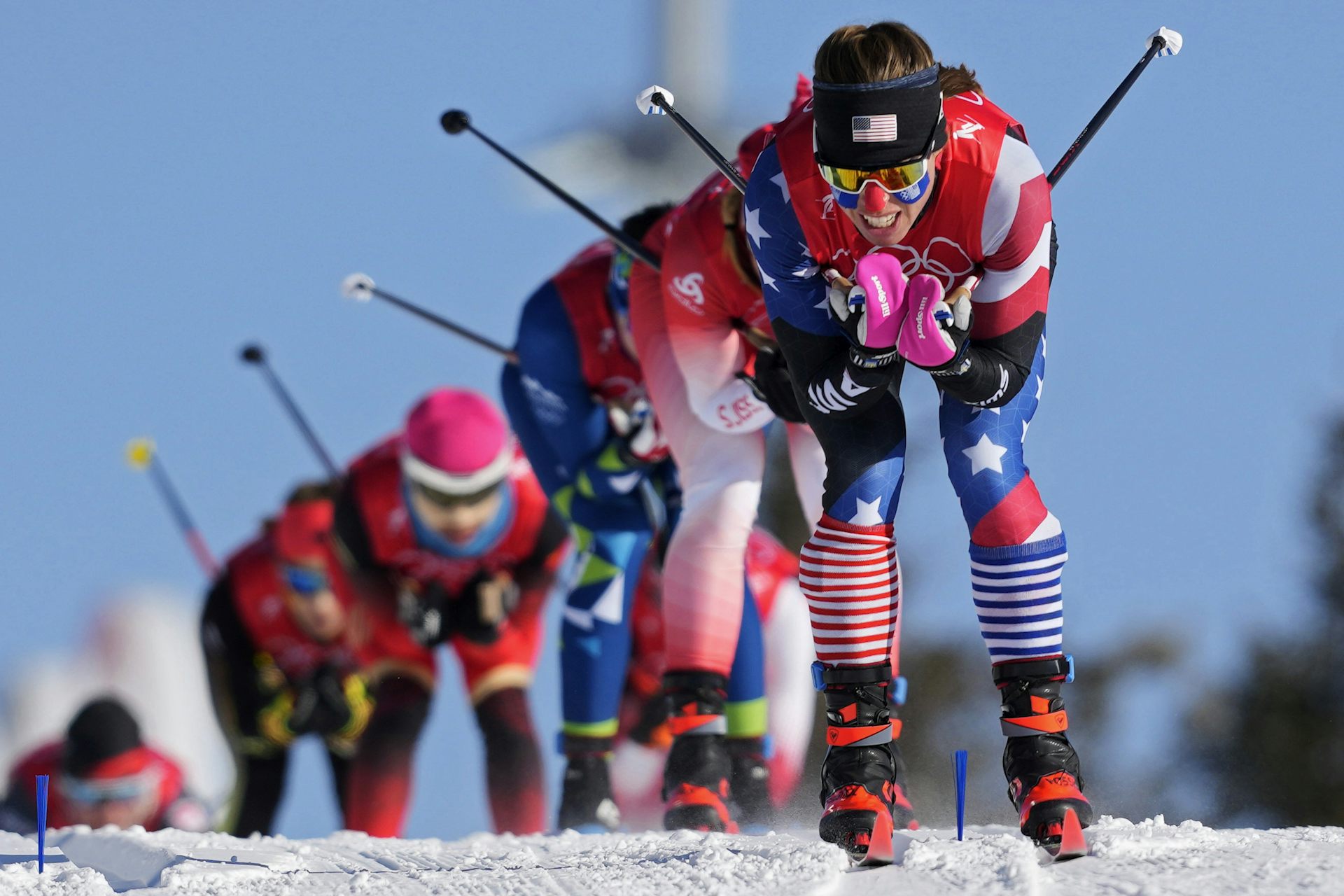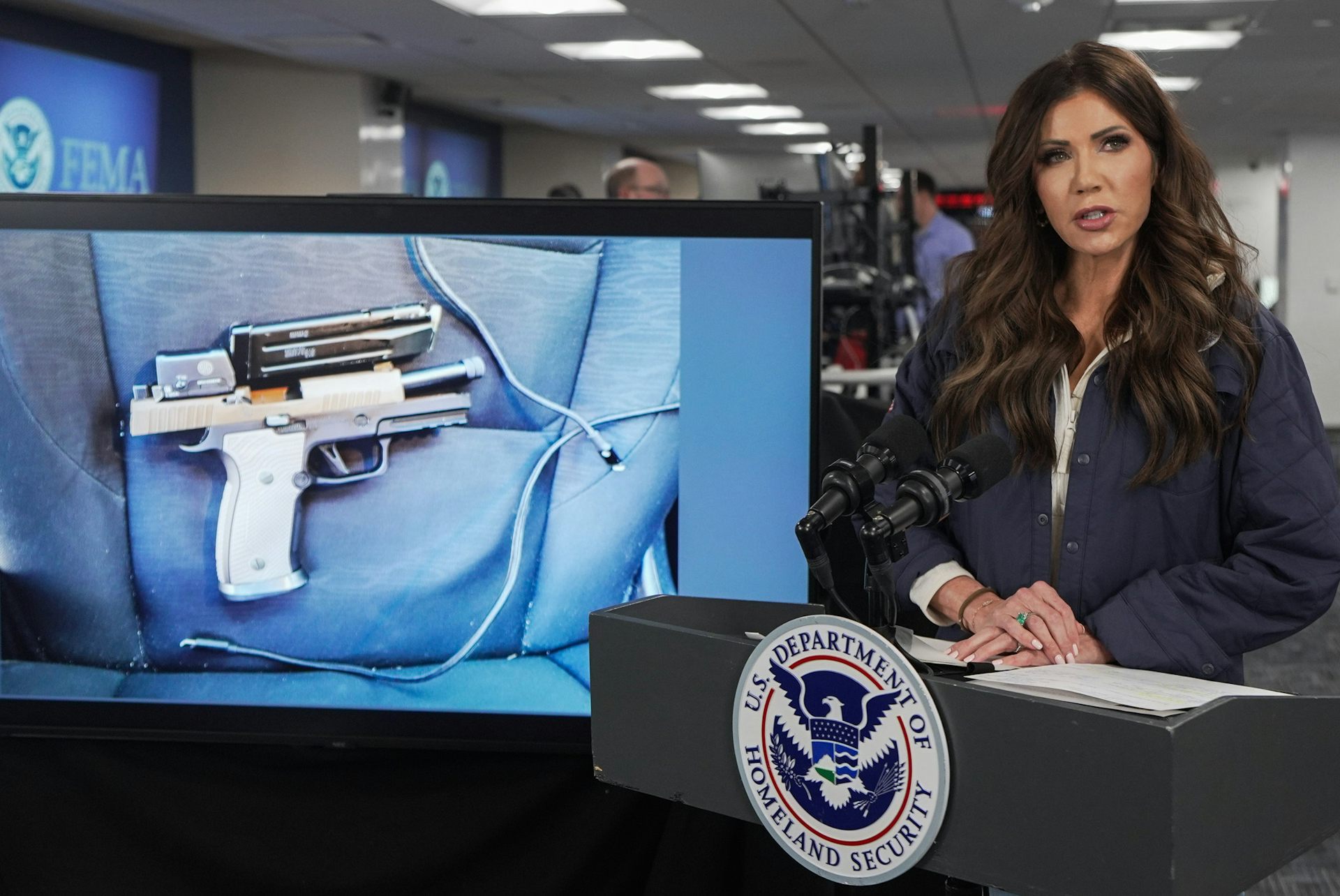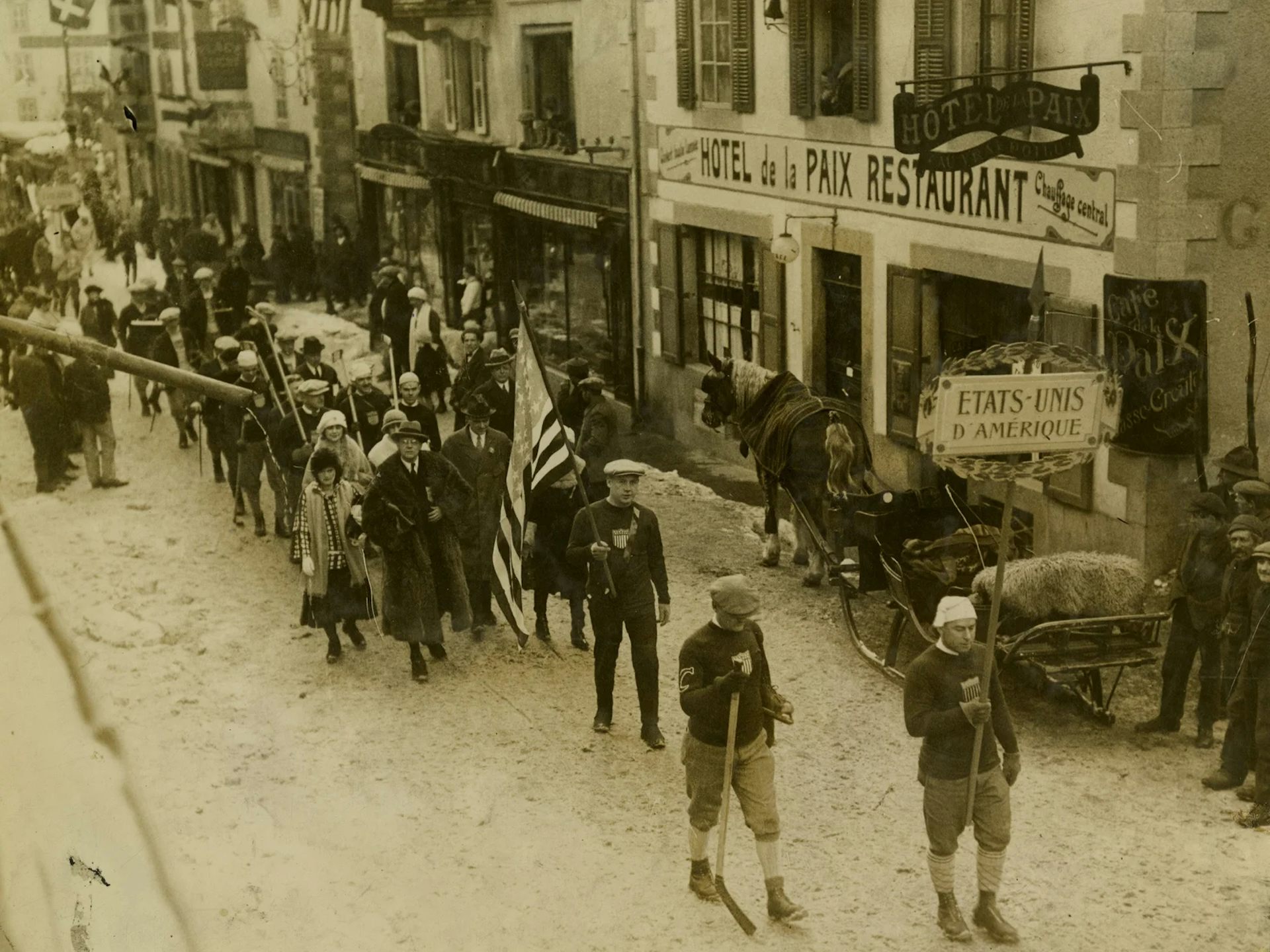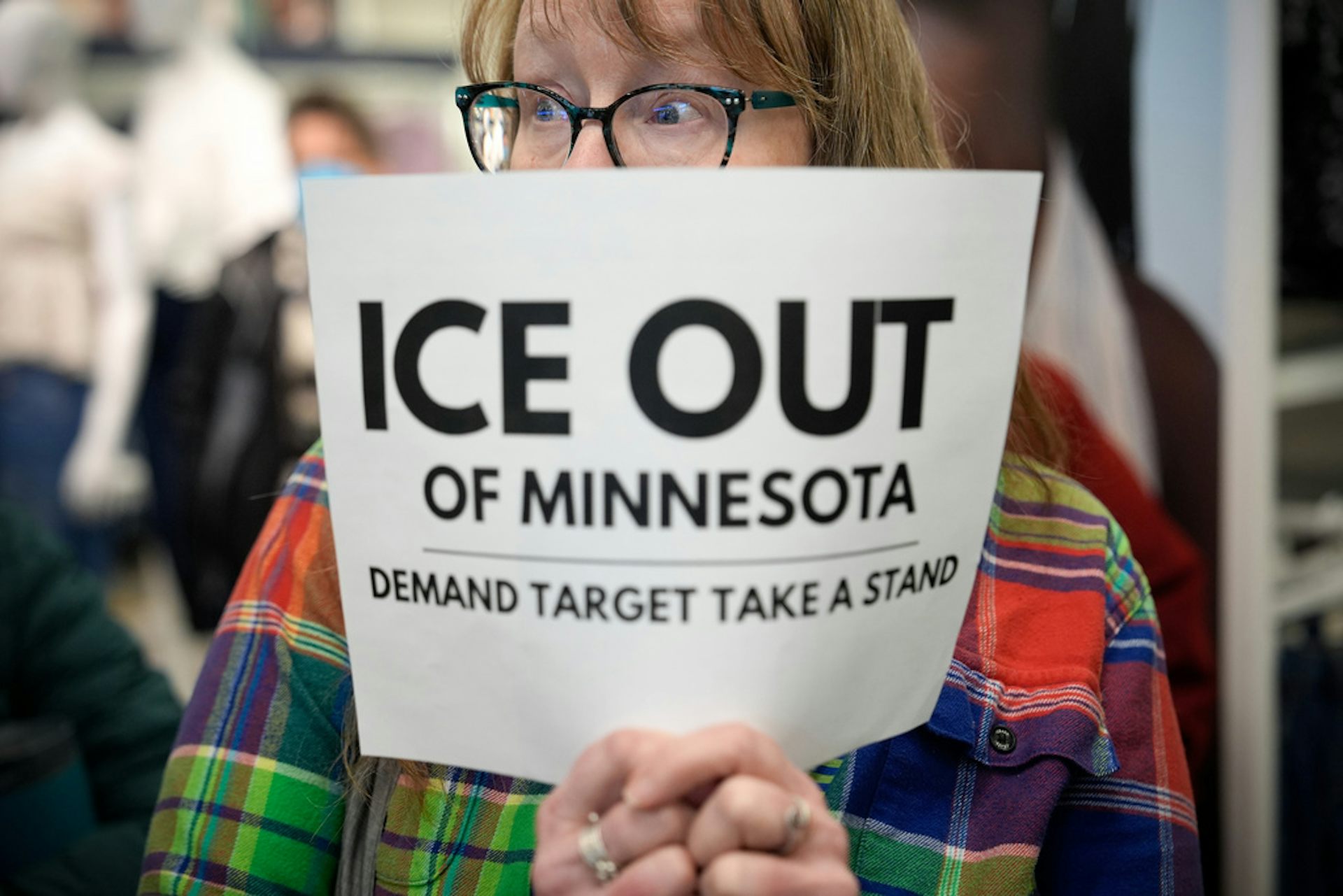Colorado is home to the longest-running gay rodeo in the world
This year is the 41st anniversary of Colorado’s Rocky Mountain Regional Rodeo, continuing its legacy despite anti-LGBTQ+ sentiments.
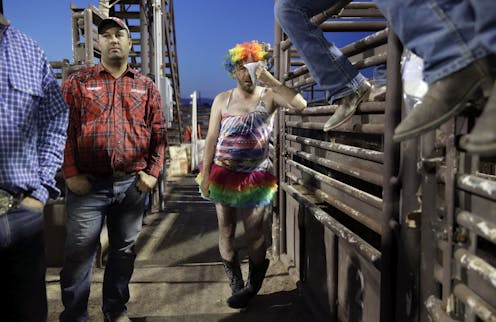
The Colorado Gay Rodeo Association has held a gay rodeo every year since 1983, making it the longest-running event of its kind in history.
Their flagship event, the Rocky Mountain Regional Rodeo in Denver, is part of a circuit of rodeos that, at times, has stretched across the United States and into Canada.
Despite the cultural pushback these rodeos have faced, the legacy of the Denver rodeo continues as it celebrates its 41st anniversary on July 12-13, 2024.
We researched the origins of this rodeo for our book, “Slapping Leather: Queer Cowfolx at the Gay Rodeo,” which also explores how gay rodeoers were at the forefront of combating discrimination and the AIDS crisis.
Roots in Reno
Gay rodeo didn’t originate in the Rocky Mountains but instead was born in another mountain range further west – the Sierra Nevada.
Businessman Phil Ragsdale held the first gay rodeo in 1976 in Reno, Nevada, as a fundraiser for local community organizations.
Ragsdale faced some difficulties renting space and animals when arena owners and stock contractors learned the event was for queer people.
Nonetheless, Ragsdale’s first rodeo largely went off without a hitch. Soon known as the National Reno Gay Rodeo, the event expanded from the couple hundred spectators and participants who attended that first year to an annual event that sometimes attracted more than 10,000 people.
In 1981, John King opened Charlie’s Denver, a gay country western bar managed by Wayne Jakino. The venue provided a space for cowfolx – or queer ranchers, rodeoers and country western enthusiasts across the gender and sexuality spectrum – to gather and form a community. Friends who met at the bar traveled en masse to the 1982 Reno rodeo. In 1983, they held their own rodeo in Denver, calling it the Rocky Mountain Regional Rodeo.
The Denver rodeo was the first gay rodeo to take place outside of Nevada, but it was soon joined by others, with four additional rodeos taking place in Oklahoma City, Phoenix, Los Angeles and Dallas by the end of 1986.
Colorado’s leadership
Thanks to the leadership of King and Jakino, the Rocky Mountain Regional Rodeo helped other gay rodeos get off the ground across the United States and Canada.
As Reno’s rodeo stumbled and eventually collapsed in 1984, Rocky Mountain Regional Rodeo members worked with groups in Texas, California and Arizona to form the International Gay Rodeo Association in 1985. Jakino took the reins as the organization’s first president.
Jakino was particularly interested in bringing a sense of professionalism to gay rodeo, though that emphasis was always balanced with fun, campiness and sexual freedom. In 1982, Jakino wrote a letter to Ragsdale in which he outlined his goal of promoting “the professionalism of gay rodeos and the enjoyment of our members and rodeo fans alike.”
Controversy in the Rockies
This emphasis on professionalism didn’t protect the International Gay Rodeo Association from anti-LGBTQ+ backlash.
The Colorado Gay Rodeo Association explained to its membership in a 1988 newsletter that the first year the group held the Denver rodeo, eight arenas turned them away because they were an LGBTQ+ organization – and that their current arena was barely on board with hosting them. The group called on its membership to prepare themselves for this kind of opposition and to come together in order to “be a constructive force in the well being of the gay community!”
Anti-LGBTQ+ hostility grew more heated in the 1980s as the AIDS epidemic spread across the country. Even as the Colorado Gay Rodeo Association fought to remain visible and present, its members were literally fighting for their lives. Two of the group’s founding members died of AIDS in 1986, and the organization directed its fundraising efforts toward helping with the HIV-AIDS crisis.
With the expansion of the Christian Right in the 1980s and ‘90s, Colorado experienced intense campaigns to oppose “the militant homosexual attack on traditional values,” as the Colorado for Family Values organization put it.
This group urged voters to pass Amendment 2, which would prevent towns or cities from creating laws to protect LGBTQ+ people and void the ordinances already in place in cities like Aspen and Boulder. Funded by national conservative groups like Eagle Forum and Focus on the Family, conservatives successfully passed the amendment in late 1992. This prompted a nationwide response called Boycott Colorado. The boycott cost the state roughly US$120 million in lost tourism. Boycott organizers hoped to deter other states from passing similar legislation, but the boycott also threatened queer-owed businesses in the state, including the rodeo.
While Amendment 2 was overturned by the Supreme Court in 1996 and never went into effect, Jakino and others were placed in the awkward position of having to ask their supporters to break boycotts to ensure their own economic survival.
In 1993, Jakino wrote to fellow rodeo associations: “We will not be driven out of Colorado or any other state and we pray that you will be there in even greater numbers as a message to Colorado and the nation – We will fight against discrimination and for our Equal Rights!”
For Jakino and many other gay rodeoers, their continued presence in the world of rodeo was a poignant act of resistance.

Gay rodeo’s future
Having survived AIDS, homophobic legislation and national boycotts, the future of gay rodeo – even such long-standing events like the Rocky Mountain Regional Rodeo – is far from assured. While the AIDS epidemic decimated gay rodeo in some ways, it also attracted people to its ranks who wanted to fundraise for their queer community. Similarly, homophobic attacks united gay rodeo against outside opposition.
Since the late 1990s, the International Gay Rodeo Association’s story has turned from boom to bust, with more associations shuttering each year. By 2013, there were more defunct associations than active ones for the first time in International Gay Rodeo Association history, and in 2019 the organization held just 10 rodeos versus 22 in its prime. The COVID-19 pandemic was a crushing blow to a group already struggling for survival.
Yet there is hope for the future, as more recent years have seen 12 rodeos back on the circuit. The Colorado Gay Rodeo Association packed stands at its 40th anniversary rodeo in 2023, but it may have a bumpy ride ahead.
Rebecca Scofield received funding from the Whiting Foundation to help support the work of the Gay Rodeo Oral History Project.
Elyssa Ford does not work for, consult, own shares in or receive funding from any company or organization that would benefit from this article, and has disclosed no relevant affiliations beyond their academic appointment.
Read These Next
What Olympic athletes see that viewers don’t: Machine-made snow makes ski racing faster and riskier
US Olympic skiers and scientists explain the sharp differences between natural snow and machine-made…
A terrorism label that comes before the facts can turn ‘domestic terrorism’ into a useless designati
A ‘domestic terrorism’ label that comes before the facts teaches the public to treat the term as…
Clarence ‘Taffy’ Abel: A pioneering US Olympic hockey star who hid his Indigenous identity to play i
Despite being a foundational figure in American hockey, Taffy Abel – who hid his Ojibwe heritage so…


